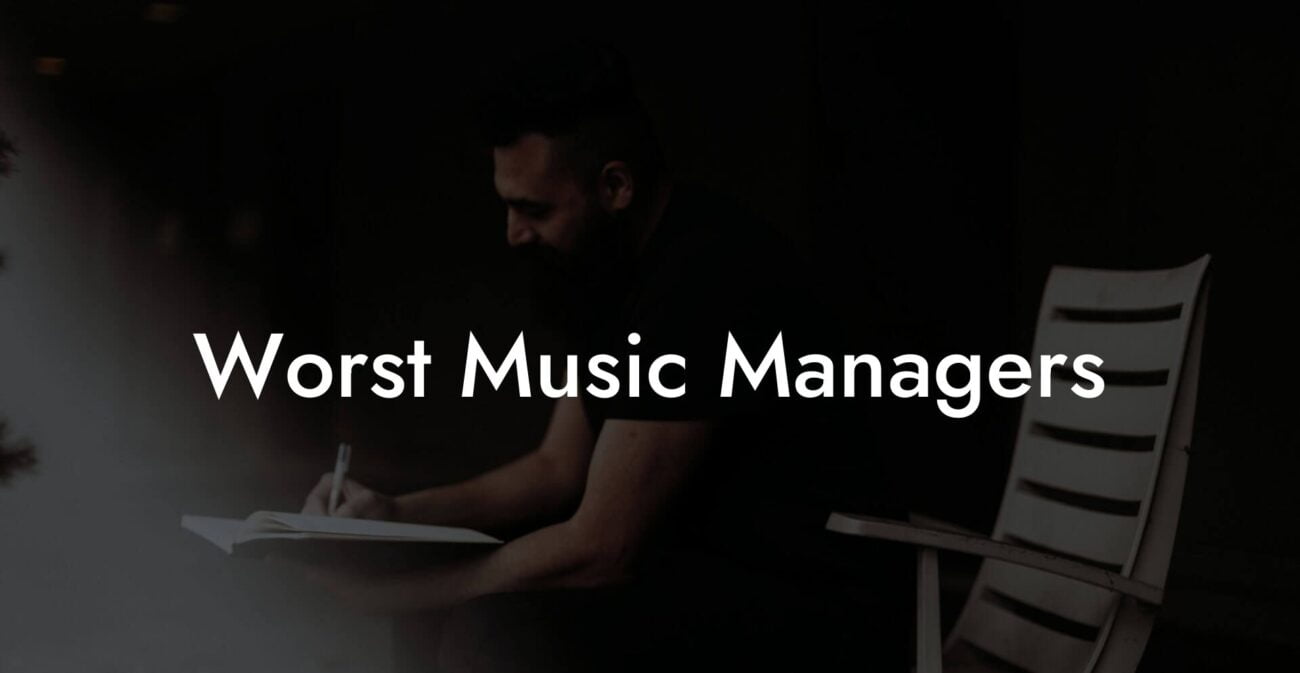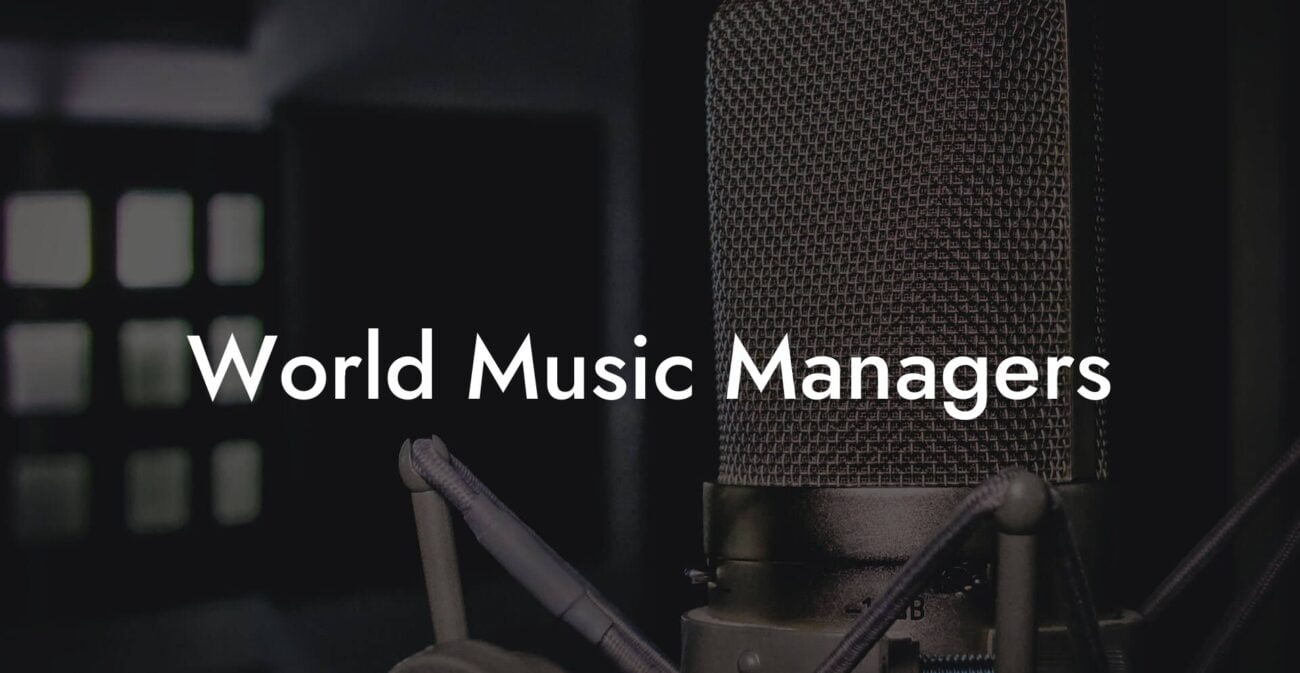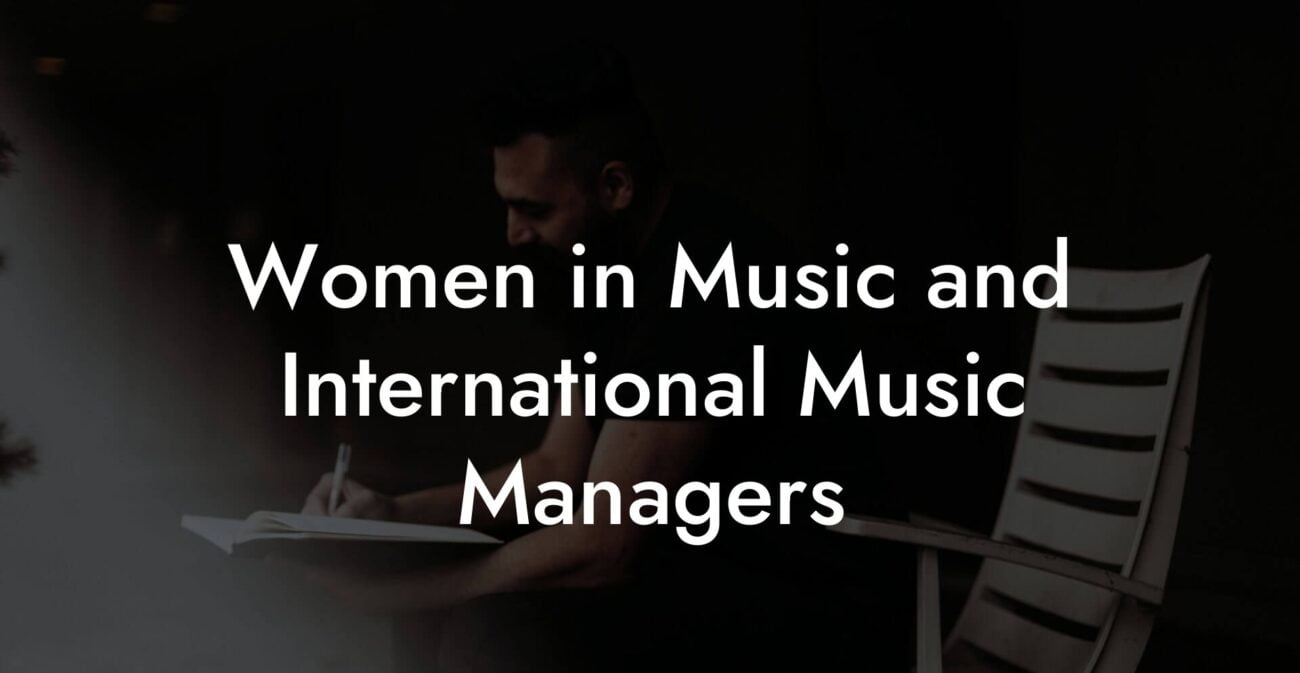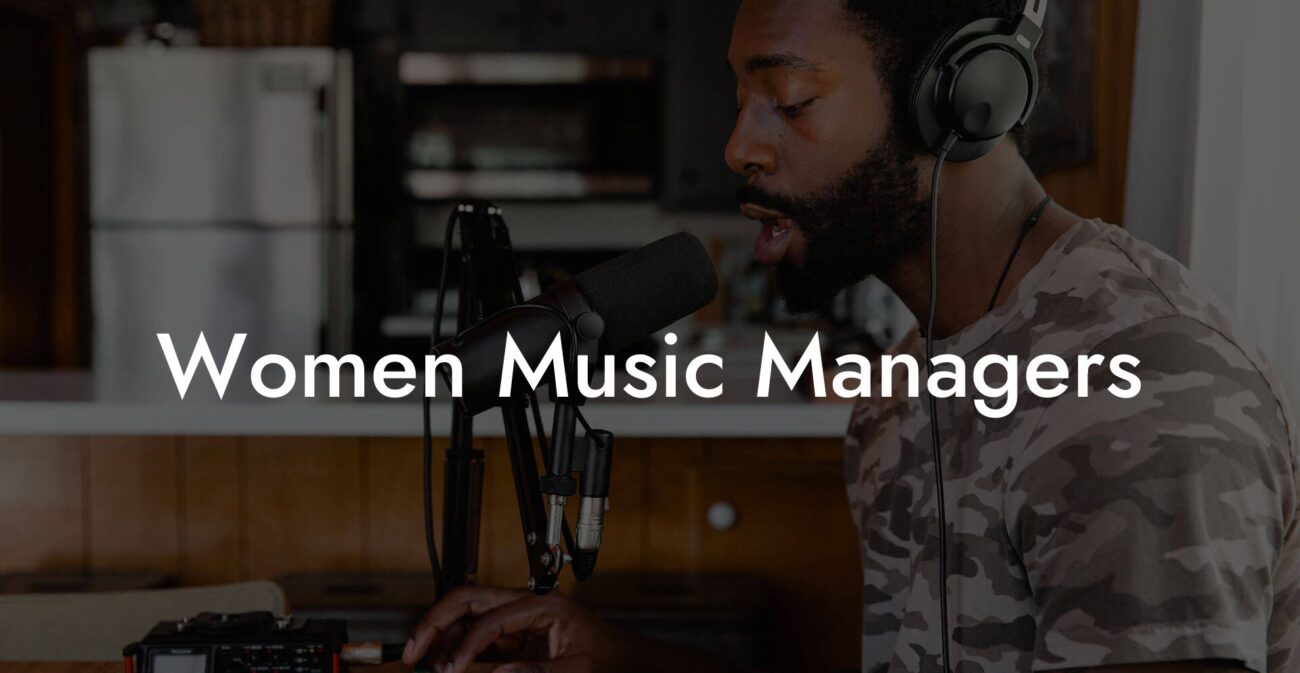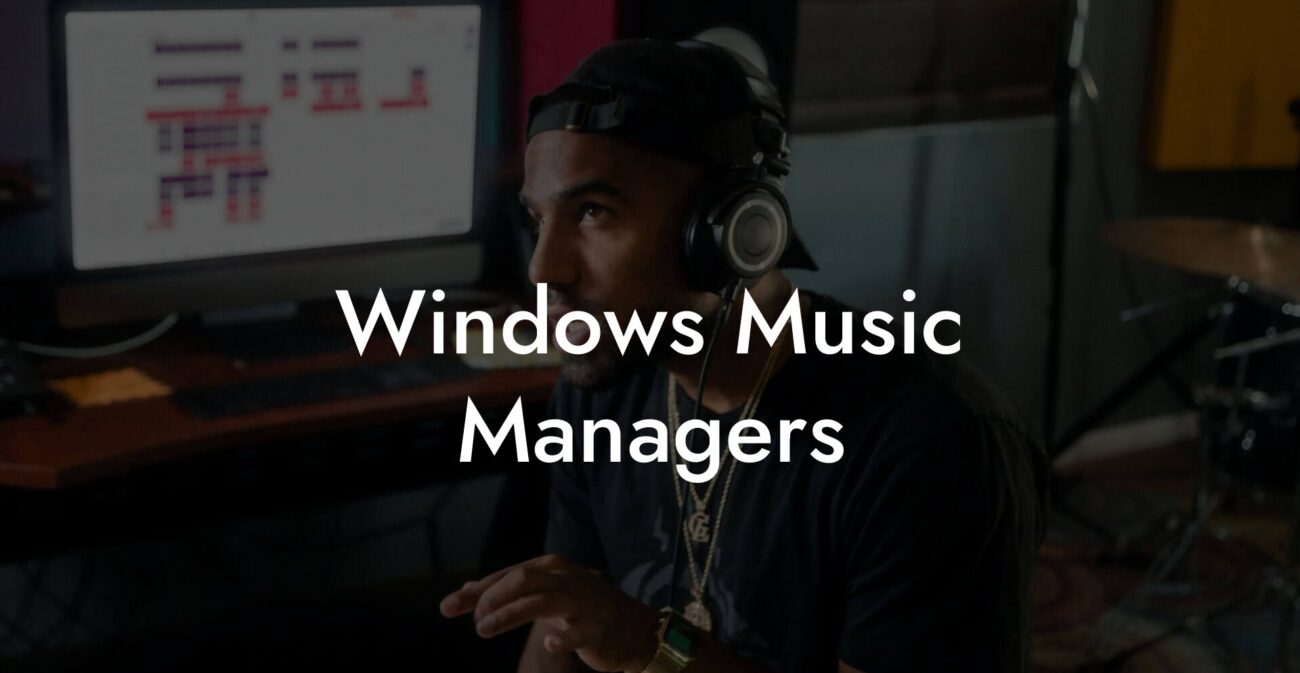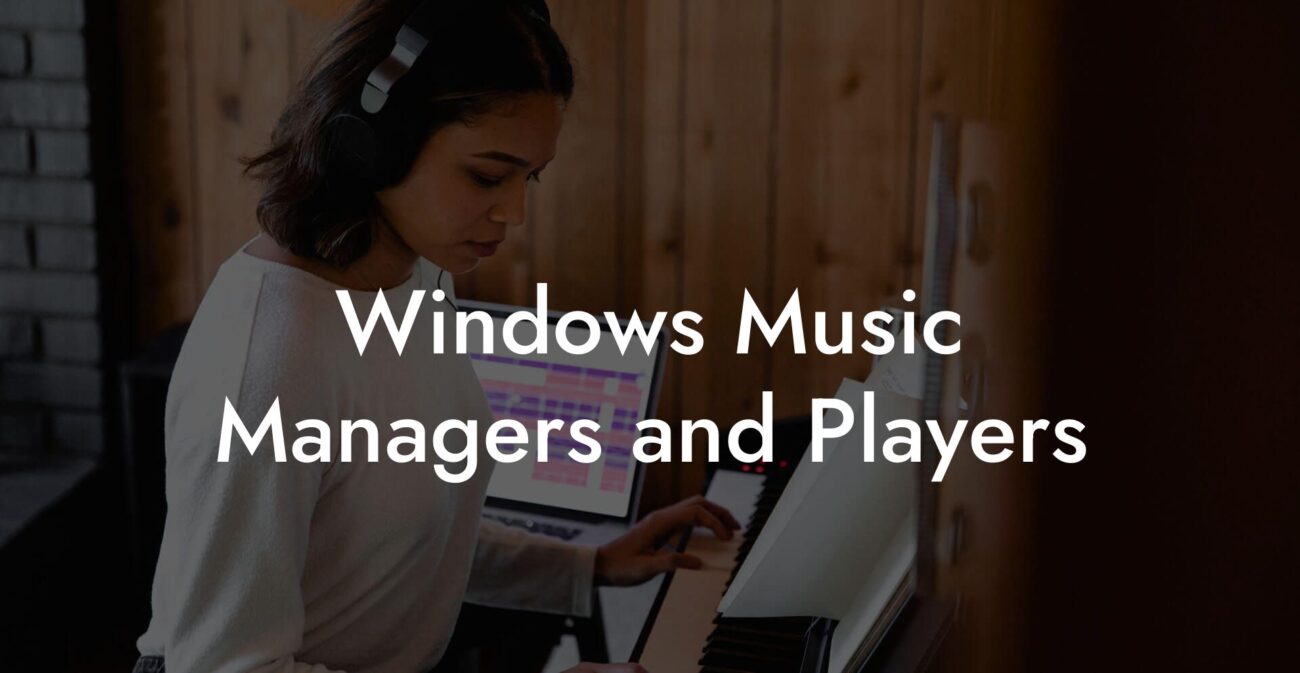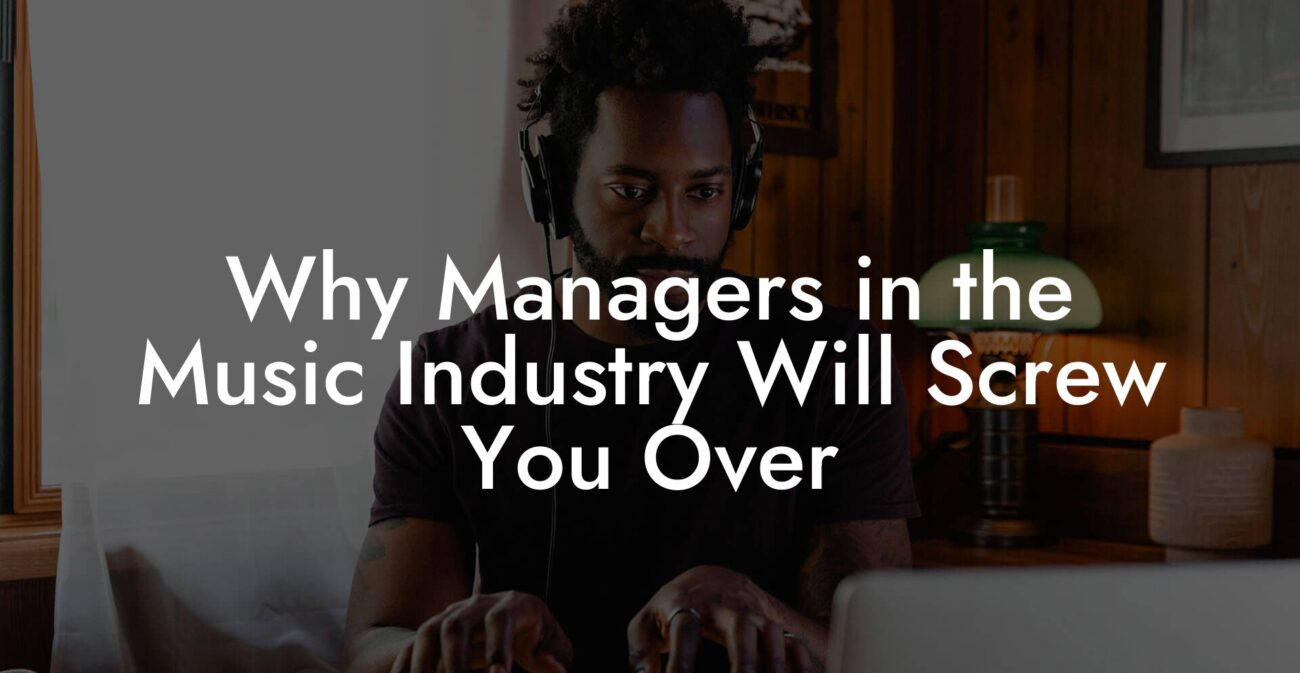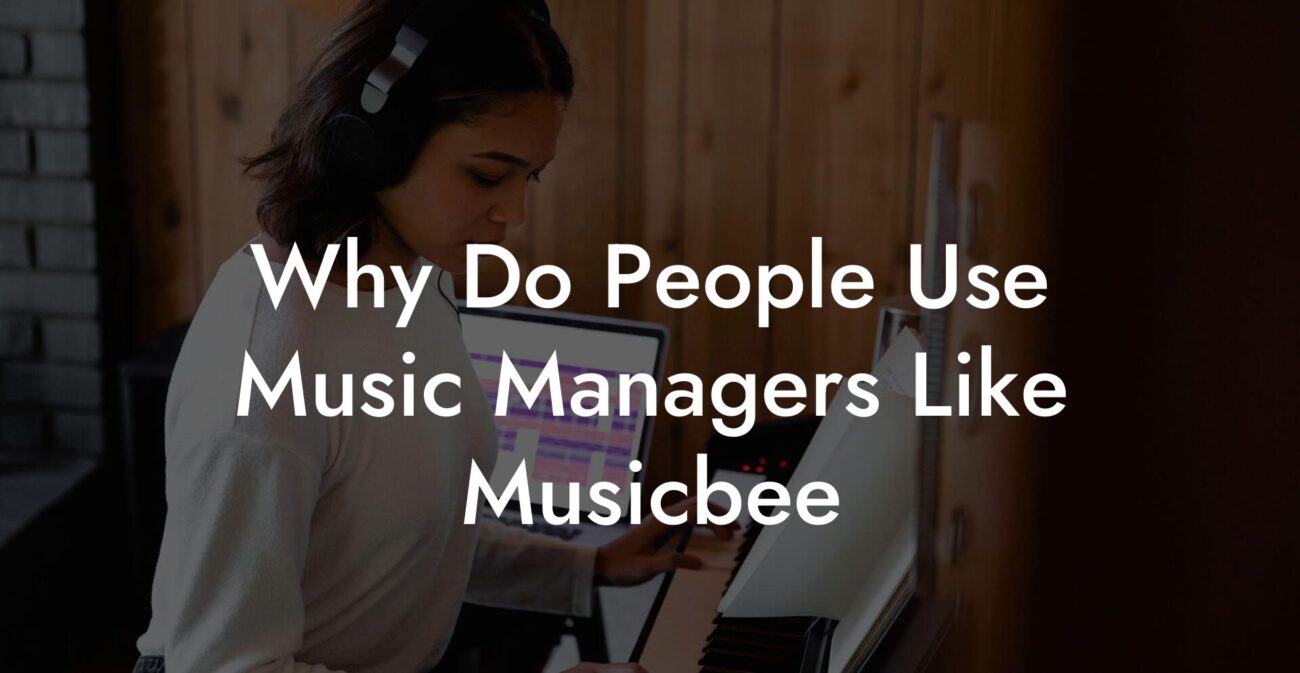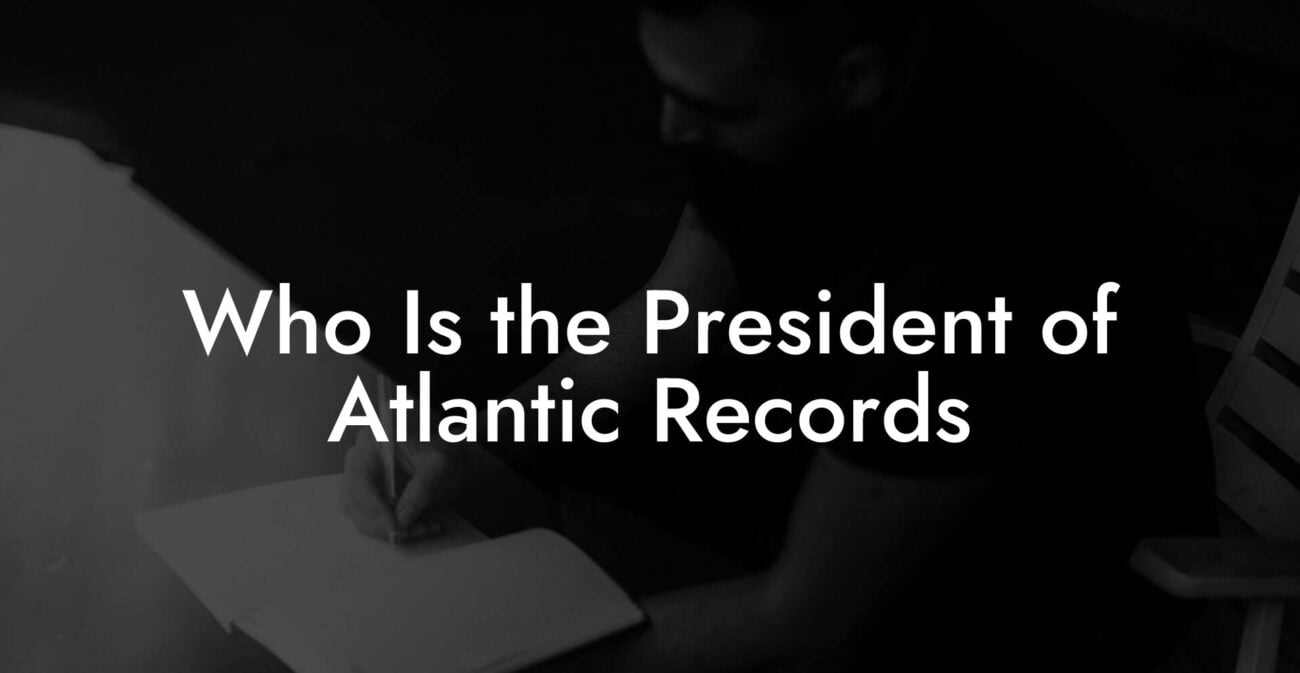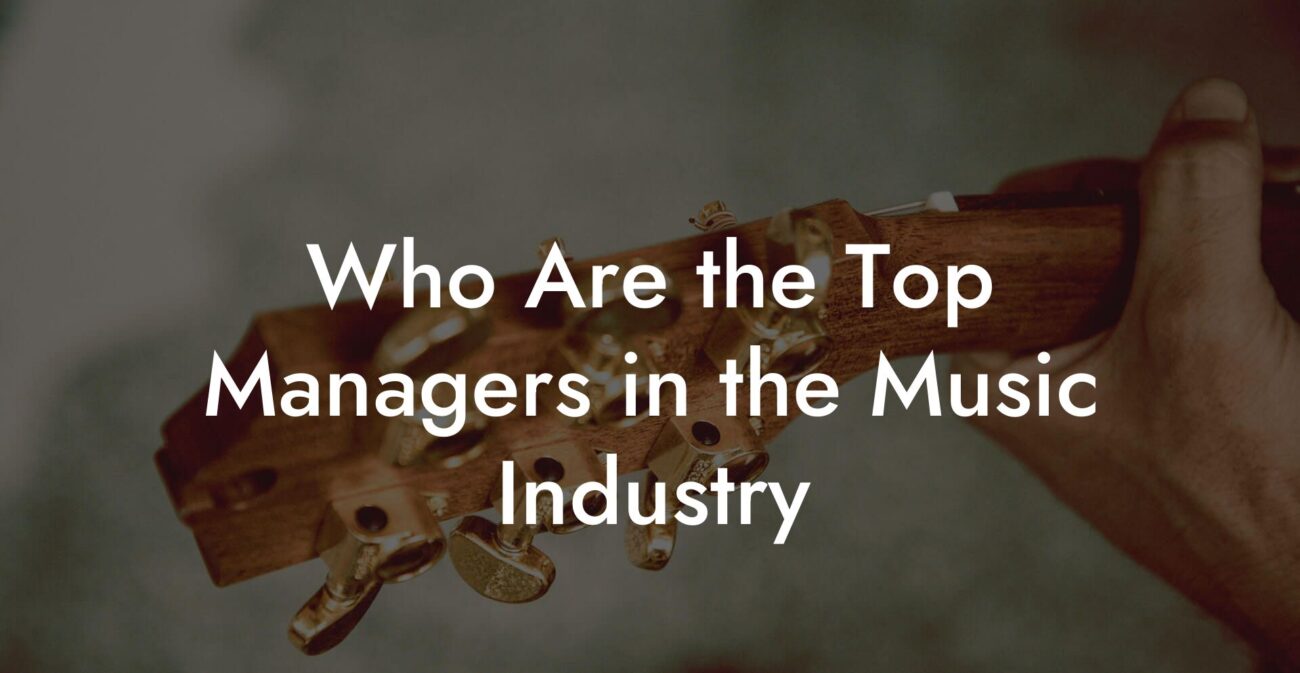Songwriting Advice
Where to Find a Music Manager
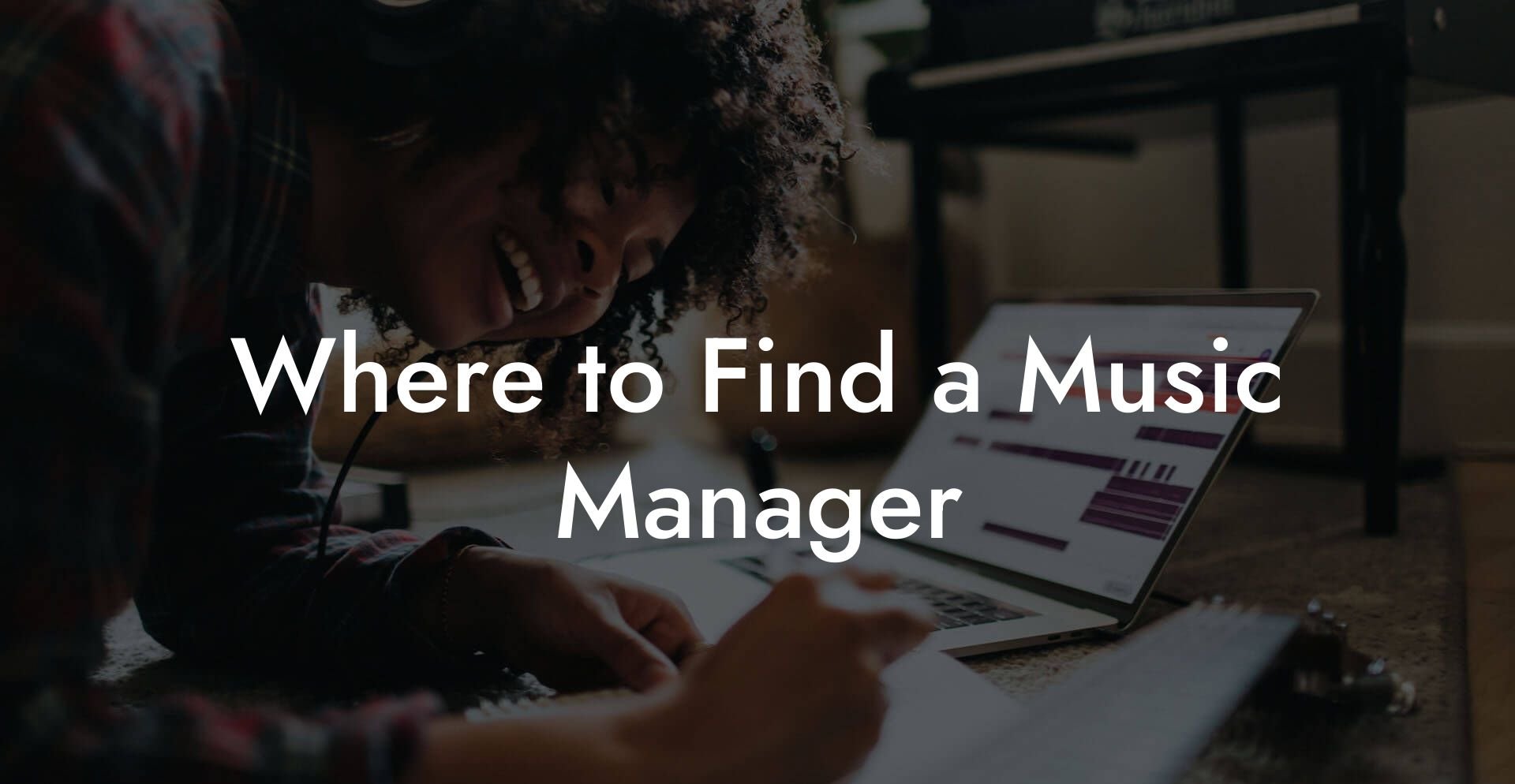
Ever felt like finding a music manager is like trying to catch a unicorn at a Coachella afterparty? If you’re a rising musician or an aspiring songwriter juggling gigs, hustle, and creative inspiration, you know that the right manager isn’t just a fancy title, they can be the secret sauce to your success. In this guide, we’re diving deep into the exhilarating adventure of tracking down that one person who’ll believe in your musical vision and help you navigate the chaotic world of the music industry. Get ready to decode the search process, sprinkle in some networking magic, and discover where to find a music manager who’s as in tune with your dreams as you are with your chords.
Quick Interruption: Ever wondered how huge artists end up fighting for their own songs? The answer is in the fine print. Learn the lines that protect you. Own your masters. Keep royalties. Keep playing shows without moving back in with Mom. Find out more →
Quick Interruption: Ever wondered how huge artists end up fighting for their own songs? The answer is in the fine print. Learn the lines that protect you. Own your masters. Keep royalties. Keep playing shows without moving back in with Mom. Find out more →
Quick Links to Useful Sections
- Understanding the Role of a Music Manager
- Why You Need a Music Manager in Your Corner
- Where to Begin Your Search for a Music Manager
- Decoding the Manager-Artist Relationship
- Alignment of Vision
- Transparent Communication
- Proven Track Record
- Mutual Respect and Trust
- Evaluating Potential Music Managers
- Tapping into Online Platforms and Social Media
- Curate Your Social Media Profiles
- Engage with Industry Hashtags and Trends
- Join Virtual Music Communities
- Leverage Professional Platforms
- Networking in the Real World: From Gigs to Music Conferences
- Attend Local Gigs and Open Mic Nights
- Participate in Music Workshops and Seminars
- Make the Most of Music Conferences
- Navigating the World of Music Manager Agencies
- Tips for Assessing Managerial Fit: Red Flags and Green Signals
- Green Signals
- Red Flags
- Case Studies: Real-Life Success Stories in Music Management
- The Indie Revival
- Crossing Over: Genre-Bending Success
- Strategies for Finding a Music Manager on a Budget
- Collaborative Ventures
- Incubators and Music Communities
- Freelance Platforms
- Building a Long-Term Partnership with Your Manager
- Set Clear Goals and Benchmarks
- Practice Open Communication
- Maintain Creative Control
- Resources and Community Support: Your Next Steps
- Staying Ahead in the Digital Age: Embracing New Trends
- FAQs: Your Music Management Questions Answered
- Your Career Symphony: Take the Stage with Confidence
Understanding the Role of a Music Manager
Before you embark on your quest, it’s key to know what a music manager really brings to the band (or solo act). In today’s fast-paced scene, a music manager does so much more than schedule gigs and handle the paperwork. They’re the ultimate blend of business strategist, brand visionary, and personal cheerleader, ready to help you navigate the unpredictable twists of the music industry.
A music manager’s responsibilities can range from booking tours, negotiating contracts, and handling marketing to even coaching you through creative blocks. They become your go-to person when it comes to decision-making, be it launching a new single, collaborating with fellow artists, or making those bold career moves. Essentially, if you’re thinking of a manager as your musical co-pilot, you’re exactly on the right track.
For the millennial and Gen Z crowd navigating the digital realm, a good manager isn’t just about old-school connections. They’re adept at leveraging social media, streaming platforms, and digital marketing strategies to get your music heard globally. So, when the time comes to find a music manager, look for someone who understands both the traditional hustles of the industry and the cutting-edge trends of the digital era.
Why You Need a Music Manager in Your Corner
Imagine trying to juggle songwriting sessions, recording in your home studio, and planning your next viral social media campaign, all while trying to manage your bookings, copyright issues, and the occasional existential crisis about the state of pop culture. This is where a music manager comes in. They not only crunch the business details, but they also serve as your industry compass and creative confidant.
Think of your music manager as the ultimate connector who opens doors to collaborations, prime gig opportunities, and media exposure. With their expertise, they can help you create a brand that resonates with fans, investors, and industry insiders. This is not just someone who handles logistical nightmares; it’s a partner who actively shapes your musical journey. Without them, you might feel like you’re lost in a never-ending sea of hashtags, DMs, and coffee-fueled brainstorming sessions.
And let’s be real, if you’re using tools like Lyric Assistant to craft those killer verses for your next hit, you deserve someone who can make sure the world hears it. Your music manager is the one who sits atop your pyramid of support (right under your creative genius) and helps you transform dreams into reality.
Where to Begin Your Search for a Music Manager
So, where do you start if you want to partner up with someone who gets both the beats and the business? The truth is, great music managers are out there, but finding them requires a little detective work and a lot of in-the-trenches networking.
Here are some tried-and-tested strategies to kick off your search:
- Networking at Live Shows and Music Festivals: From intimate gigs at local cafés to the vast fields of music festivals, these events are prime spots to meet industry insiders. Engage with fellow musicians, catch a few small set openings, and keep an eye out for those people who seem to be the brains behind the show.
- Online Communities and Forums: The digital age means you don’t have to rely solely on in-person events. Platforms like Reddit, Discord, and Facebook groups are buzzing with musicians, industry professionals, and aspiring managers. Join these virtual hubs, contribute to discussions, and show off your talent. Who knows? Your next manager might just slide into your DMs.
- Music Conferences and Workshops: Attending conferences such as SXSW, ASCAP Expo, or even local songwriting retreats can be game changers. Not only will you learn industry secrets, but you’ll also meet potential collaborators and managers in a setting that’s all about creativity and growth.
- LinkedIn and Professional Platforms: Yes, even in the world of artsy, free-spirited creativity, platforms like LinkedIn can be your best friend. Use professional networking sites to find contacts with a proven track record in artist management who are looking to partner with fresh talent.
- Music Manager Directories: Some websites and organizations maintain directories of certified managers and agencies. Research these directories and approach those managers who seem to align with your musical vision and goals.
Regardless of which route you choose, remember that passion and persistence are your best allies. Take the time to craft a compelling artist bio, showcase your best work, and be ready to articulate your unique sound and vision.
Decoding the Manager-Artist Relationship
Finding a music manager isn’t just about contacting the first name that pops up on your social feed, it’s about forging a relationship built on trust, mutual goals, and a shared passion for music. Here’s what distinguishes a stellar manager-artist relationship from a one-off business deal:
Alignment of Vision
Your creative vision needs to resonate with your manager’s strategic approach. Look for someone who not only understands your music but believes in your potential. Are they excited about your sound? Do they have creative ideas that complement your style? A harmonious relationship starts with a shared vision for the future.
Transparent Communication
Success in the music industry is a two-way street. Effective communication is critical, both in negotiating contracts and in discussing creative directions. A good manager is transparent about their process, expectations, and the challenges ahead. They’re open to honest conversation without the corporate jargon that can make your head spin.
Proven Track Record
While every success story has to start somewhere, a background check on potential managers is a must. Ask for references, check their portfolio, and don’t hesitate to slide into their social media DMs to learn more about their work ethic and past successes. A manager with a solid track record can be the turning point in your career.
Mutual Respect and Trust
An ideal partnership thrives when both parties are equally invested. Trust that your manager will have your best interests at heart, and be ready to put in the work from your side too. This isn’t just a business arrangement, it’s a creative collaboration where both parties bring their A-game.
Evaluating Potential Music Managers
Not every manager candidate will be the perfect fit, and that’s totally okay! It’s important to evaluate potential managers based on clear criteria that align with your personal and professional goals. Here’s a checklist to help you navigate this decision:
- Industry Experience: Do they have a history of working with artists similar to you? Look for proven success in your genre or a willingness to adapt strategies that cater to emerging talent.
- Network Reach: A robust network can open doors that you wouldn’t even know existed. Check if they have industry connections that can boost your career, from booking agents to recording studios and PR agencies.
- Financial Transparency: Understand their fee structure and ensure there are no hidden costs. A clear contractual arrangement helps avoid future disputes and builds mutual trust.
- Communication Skills: Are they prompt and professional when you reach out? Their responsiveness and clarity in communications can be a huge indicator of how well they’ll manage crises and opportunities alike.
- Cultural Fit: The music industry is as much about personality as it is about business. Consider whether this manager’s style meshes with your personality and your creative approach.
- Flexibility and Adaptability: The music world is ever-changing. A manager with the ability to adapt to trends, whether it’s a new streaming platform, emerging social media trends, or innovative marketing techniques, is a huge asset.
Take your time during this evaluation process. Ask for meetings, have in-depth discussions, and don’t be afraid to trust your instincts. The right manager is someone who not only enhances your professional journey but also understands your artistic soul.
Tapping into Online Platforms and Social Media
Let’s face it: if you’re a millennial or a Gen Z artist, online platforms and social media aren’t just tools, they’re lifelines. The digital realm is packed with innovative platforms where music managers and artists connect, collaborate, and create buzzworthy magic.
Platforms like Instagram, Twitter, LinkedIn, and even TikTok can serve as excellent venues for showcasing your music and for discovering talent in management. Here’s how to maximize your online presence:
Curate Your Social Media Profiles
Your social media is your digital portfolio. Keep your profiles updated with your latest tracks, behind-the-scenes content from writing sessions, and snippets of live performances. A compelling and cohesive online presence not only attracts fans but also grabs the attention of music managers scouting for fresh talent.
Engage with Industry Hashtags and Trends
Use targeted hashtags like #MusicManager, #IndieArtist, #MusicIndustry, and genre-specific tags to widen your visibility. Engage with posts, comment thoughtfully, and share your music journey, it’s all about creating a buzz that resonates within the industry’s digital corridors.
Join Virtual Music Communities
Participate in virtual forums and groups on platforms like Reddit (subreddits like r/WeAreTheMusicMakers or r/independentmusic) and Discord channels dedicated to music. These communities are gold mines for networking opportunities, where industry insiders, managers, and fellow artists converge.
Leverage Professional Platforms
Dedicated platforms like LinkedIn can provide a more formal space to connect with experienced music managers. Make sure your profile reflects your musical journey, accolades, and ambitions. Sometimes, a well-crafted LinkedIn post about your latest release can catch the eye of a potential manager or industry veteran.
The digital era means that geographical boundaries shrink and possibilities expand, so tap into every online channel with a sense of creativity and authenticity. Your next big breakthrough might be just a click away!
Networking in the Real World: From Gigs to Music Conferences
Even in today’s digital-first landscape, nothing beats the power of face-to-face connections. Whether it’s a small local show or a bustling music conference, these events are fertile grounds for meeting potential managers in person.
Here’s how to make real-world networking work for you:
Attend Local Gigs and Open Mic Nights
These events aren’t just opportunities for exposure, they’re networking gold mines. Chat with fellow musicians, exchange business cards, and be that memorable personality who leaves an impression. Show genuine interest in others’ work; you never know who might have connections in the industry.
Participate in Music Workshops and Seminars
Learning from industry veterans at workshops and seminars not only boosts your skills but also places you in rooms with potential managers. Engaging in Q&A sessions and follow-up discussions can lead to meaningful relationships. Once you’ve got a taste of their insights, ask for advice, this is how many successful manager-artist partnerships start.
Make the Most of Music Conferences
Conferences like SXSW, MIDEM, and regional sporting music events are attended by a who’s who of the industry. You’ll have the chance to attend panels, network during meet-and-greets, and even participate in intimate breakout sessions. Keep a polished elevator pitch ready, and don’t be surprised if a casual chat turns into a career-defining conversation.
Remember, authenticity is key at these events. Approaching someone with genuine enthusiasm and a clear vision can set you apart from the crowd of aspiring artists seeking attention. Building these in-person connections lays the foundation for long-term, mutually beneficial relationships.
Navigating the World of Music Manager Agencies
For those who prefer a more structured approach, music manager agencies and talent management firms might be the answer. These agencies represent a portfolio of artists and are often on the lookout for fresh talent who fit their niche.
When considering agencies, keep the following in mind:
- Reputation and Reviews: Research the agency’s track record. Look for testimonials from artists, award nominations, and a history of successful projects.
- Specialization: Some agencies focus on certain genres or market segments. Find one that resonates with your style and has a deep understanding of your niche.
- Agency Structure: Understand how the agency operates. Do they offer full-service management, or is it more of a la carte arrangement? Clarify what services are included in your contract.
- Contract Terms: Read the fine print. From commission percentages to contract duration and performance obligations, being well-informed helps avoid future complications.
While agencies can offer extensive resources and a built-in network, they might also come with more rigid expectations. Decide whether you prefer the independence of a one-on-one manager or the support system of an agency that has your back in every corner of the industry.
Tips for Assessing Managerial Fit: Red Flags and Green Signals
Even after extensive research and networking, the moment of truth arrives when you sit down for that in-person or video meeting with a potential manager. Here’s how to assess if they’re the right fit for you, and which red flags to watch out for:
Green Signals
- They Ask Questions: A great manager is as curious about your artistic vision as you are excited to share it. They ask thoughtful questions to understand your goals inside and out.
- Transparent Conversation: They’re upfront about fees, expectations, and the challenges ahead. There’s no mystery when it comes to their process or experience.
- Their Network Speaks Volumes: When their past collaborations and current industry engagements clearly show a positive trajectory, you know you’re potentially on the right track.
- Shared Vision: They enthusiastically align with your creative goals and have concrete ideas to achieve them.
Red Flags
- Vague Promises: Beware of any manager who makes grand promises without any real-world examples. If it sounds too good to be true, ask for specifics.
- Lack of Credentials: An inexperienced or non-transparent background is a red flag. Do your homework to verify their credentials and previous work.
- Overbearing Control: A manager should elevate your creative vision, not hijack it. If they’re dictating every creative decision, it might be time to reconsider.
- Poor Communication: Timely and clear communication is paramount. Delays in responses or a lack of clarity can signal future issues down the line.
Using these tips during your meetings will help ensure that you enter into a partnership that’s built on mutual respect, clear communication, and shared ambitions. Trust your gut, and always prioritize what’s best for your creative journey.
Case Studies: Real-Life Success Stories in Music Management
Nothing illustrates the impact of a talented music manager more than real-world success stories. Let’s take a look at a couple of case studies that highlight how the right manager can change an artist’s trajectory.
The Indie Revival
Meet Avery, an indie singer-songwriter armed with nothing but her acoustic guitar and raw lyrics. After years of playing local open mic nights, Avery finally teamed up with a manager who had a deep understanding of social media storytelling and digital marketing. This partnership led to a viral TikTok campaign that not only doubled her fanbase overnight but also secured her a spot at a major music festival. Avery’s example shows that sometimes, the perfect manager is the one who knows how to tell your story to the world.
Crossing Over: Genre-Bending Success
Then there’s Marcus, a hip-hop artist who blended soulful rhythms with modern beats. His manager recognized the potential in merging traditional lyricism with contemporary production techniques. By leveraging digital platforms alongside strategic live performances, Marcus secured collaborations with established artists and even landed a spot on a popular streaming playlist. This case study reinforces the idea that a manager who understands both the art and the business can be instrumental in crossing genre boundaries and reaching a broader audience.
These success stories highlight that the right manager not only brings experience and industry savvy; they also bring a genuine passion for elevating your creative vision. Whether you’re an indie darling or a genre-defying innovator, aligning with a manager who understands your unique sound can truly be transformative.
Strategies for Finding a Music Manager on a Budget
Not every artist has a fat wallet to throw at top-tier management agencies. For many emerging talents and independent artists, budgeting is a real concern. Fortunately, there are creative, cost-effective ways to find a competent manager without breaking the bank.
Here are some budget-friendly strategies:
Collaborative Ventures
Look for managers who are willing to work on a commission-only basis, where their earnings are directly tied to your success. This arrangement ensures that both parties are equally motivated to push for that chart-topping single or viral moment.
Incubators and Music Communities
Consider joining local or online communities and artist incubators that offer mentorship programs. These groups are goldmines for connecting with up-and-coming managers who are eager to build their portfolios and may work for more favorable terms than established giants.
Freelance Platforms
Platforms like Fiverr, Upwork, and SoundBetter aren’t just for hiring session musicians or producers. They can also be a solid starting point for finding freelance music managers who are passionate about discovering new talent.
Remember, every successful manager started somewhere. Openness to creative financial arrangements, like profit splitting or project-based fees, can sometimes lead you to partnerships that are as financially viable as they are creatively fulfilling.
Building a Long-Term Partnership with Your Manager
Finding the right music manager is just the beginning. The true value lies in building a long-term partnership that evolves as your career grows. A dedicated manager will not only handle the administrative grind but will also celebrate your breakthroughs and help you navigate inevitable setbacks.
Here’s how to cultivate a sustainable, mutually rewarding relationship:
Set Clear Goals and Benchmarks
From the outset, define short-term and long-term goals. Whether it’s increasing your streaming numbers, landing a headline gig, or expanding your social media following, clear benchmarks provide direction and help evaluate progress. Schedule regular check-ins to review results and tweak strategies as needed.
Practice Open Communication
Honesty and transparency form the backbone of a solid manager-artist relationship. Express your concerns, celebrate your wins, and be receptive to feedback. A well-synced partnership can weather even the wildest industry storms when both parties are on the same page.
Maintain Creative Control
While your manager is there to offer guidance and take on the business side of things, your creativity is the heart of your journey. Ensure that your contract and working relationship preserve your artistic freedom while still allowing your manager to bring their expertise to the table.
By fostering a relationship built on trust, clear communication, and aligned visions, you set the stage for growth that goes beyond just the next hit single, it’s about crafting a lasting legacy.
Resources and Community Support: Your Next Steps
Feeling the excitement yet? As you gear up to find that perfect music manager, it’s time to expand your arsenal with online resources, community networks, and tools that can add that extra edge to your search. Here are some actionable steps to propel you forward:
- Music Industry Blogs & Podcasts: Keep up with the latest trends and insider stories from platforms like Hypebot, Music Business Worldwide, and various indie artist podcasts. They often feature interviews with successful managers who share their journeys and advice.
- Artist Development Workshops: Participate in webinars, local workshops, or virtual masterclasses that focus on career development. These sessions often provide practical insights, mentorship opportunities, and direct connections with industry professionals.
- Social Media Groups & Forums: Engage with online communities dedicated to independent music. Platforms like Reddit, Discord, and Facebook groups can be treasure troves for networking, advice, and even referrals to managers with a proven track record.
- Music Marketing Tools: Use tools like Lyric Assistant to effortlessly craft captivating lyrics that complement your musical style. A solid body of work not only impresses potential managers but also reflects your commitment to the craft.
- Local Music Scenes: Connect with local music communities by attending open mic nights, industry mixers, and local gigs. These intimate settings can open doors to personal introductions and collaborations that online networking alone can’t match.
By tapping into these resources, you’re not just searching for a manager, you’re becoming part of a vibrant, supportive community that shares your passion and drive. Your next steps are within reach, and every connection made is another note in the symphony of your career.
Staying Ahead in the Digital Age: Embracing New Trends
As the music industry becomes increasingly saturated with digital innovation, staying ahead means embracing new trends and tools that can amplify your reach. The digital landscape offers endless opportunities, from AI-driven analytics on streaming data to interactive fan engagement via social media live streams.
For tech-savvy artists, a forward-thinking music manager will not only be aware of these trends but also integrate them into your overall career strategy. Whether it’s exploring virtual concerts, engaging with fans on emerging platforms, or collaborating on multimedia projects, a modern music manager leverages every tool at their disposal to create a dynamic, evolving brand.
This proactive approach means that while your creative spark is essential, your manager’s ability to harness digital tools can be the catalyst for your breakthrough. So, if you’ve been using platforms like Lyric Assistant to craft your lyrics, imagine what you could accomplish with a manager who’s equally passionate about the power of technology in music.
FAQs: Your Music Management Questions Answered
Below are some of the most common questions artists have when searching for a music manager:
1. What exactly does a music manager do?
A music manager handles the business side of your music career, from booking gigs and negotiating contracts to developing your brand and connecting you with industry professionals. They work to ensure that you have more time to focus on your creative process.
2. How do I know if a manager is right for me?
Finding the ideal manager involves assessing whether their vision aligns with your creative goals, evaluating their industry experience, and feeling a sense of trust and camaraderie during your initial conversations. Don’t be afraid to ask for references or examples of past successes.
3. Are commission-based deals common in music management?
Yes, especially for emerging artists. Many managers work on a commission or profit-sharing basis, ensuring that their earnings are tied to your success. This model can be mutually beneficial if you’re on a tight budget.
4. What should be included in a management contract?
Your contract should clearly define the scope of work, commission rates, duration of the agreement, and specific expectations from both sides. Always consider legal advice before signing anything binding.
5. How can I use social media to attract a music manager?
Keep your social profiles active and engaging, use relevant hashtags, participate in online music communities, and share your creative journey consistently. A robust digital presence can catch the eye of potential managers browsing for new talent.
6. Is it better to work with an agency or an independent manager?
Both have their advantages. Agencies can offer extensive resources and networking opportunities, while independent managers might provide more personalized attention. Consider what fits your career stage and creative needs.
7. How long does it typically take to secure a manager?
The timeline varies. It can take several months of networking, meetings, and negotiation before you find the perfect fit. Patience and persistence are key during this process.
8. Can I start managing some of my own career if I can’t find a manager right away?
Definitely. Many independent artists manage their own bookings and marketing until they have the resources to bring in a dedicated manager. Just remember to educate yourself about the business side of music to avoid pitfalls.
9. What red flags should I watch out for when meeting a potential manager?
Be cautious if a manager makes vague promises, shows a lack of transparency, or insists on controlling every creative decision. It’s important that the relationship is built on trust and mutual respect.
10. How important is it for a manager to have a strong digital presence?
In today’s music industry, having a digital-savvy manager who understands online marketing, social media, and streaming analytics can be a huge asset. Their ability to adapt to digital trends can significantly boost your career.
Your Career Symphony: Take the Stage with Confidence
Finding the music manager who will champion your creative endeavors is more than just checking off boxes on a list, it’s about forging a relationship that brings harmony to your artistic and business sides. With passion, persistence, and a proactive approach, you’re well on your way to finding the manager who can amplify your voice in an industry that’s as dynamic as it is challenging.
From local gigs to viral online campaigns, your musical journey is a symphony of creative expression and strategic planning. With the right manager by your side, your music will not only reach ears around the world, it will resonate, inspire, and leave a lasting mark on the industry.
So, drop the beat, embrace the thrill of the hunt, and remember: the right music manager is out there, ready to help you shape a story that’s both authentic and groundbreaking. Your stage is set, go out and claim your spotlight!


